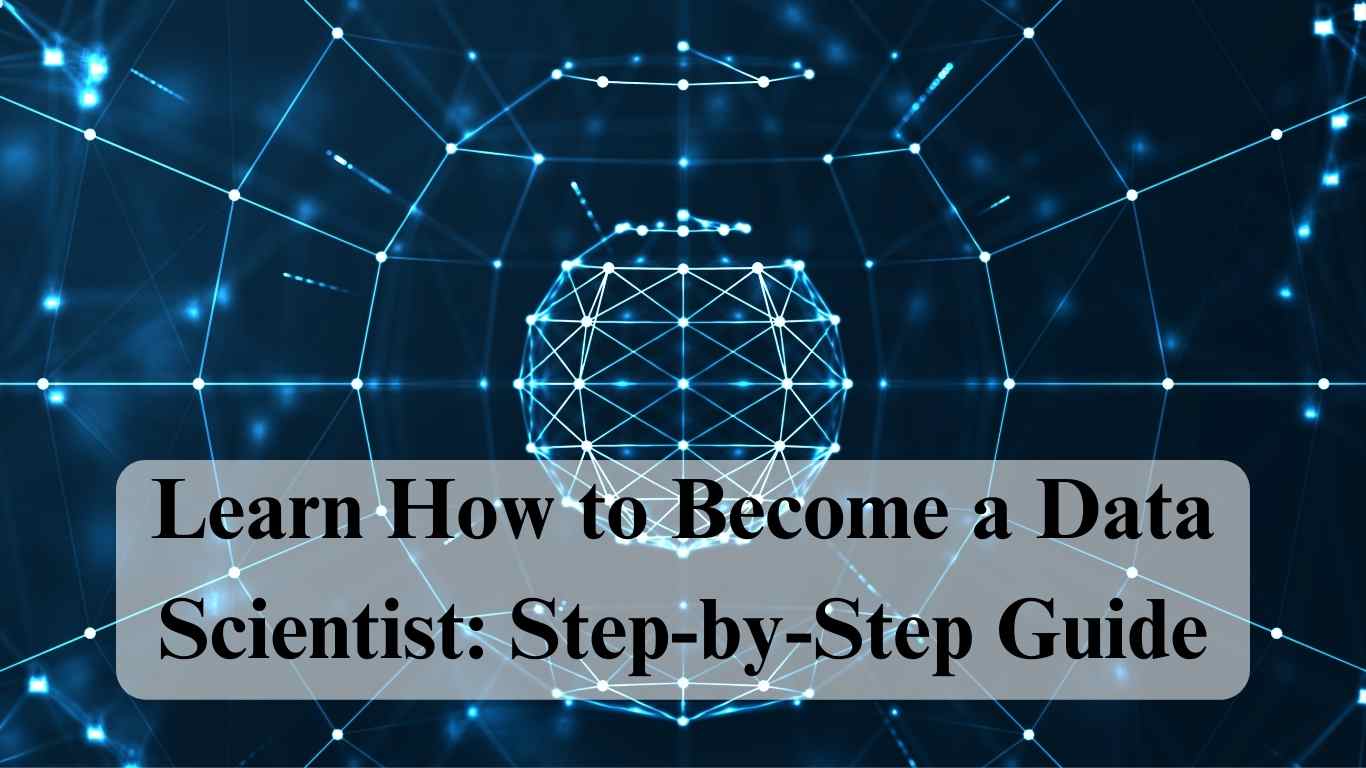Introduction to Data Science
Data science has emerged as a transformative field at the intersection of technology, mathematics, and business. At its core, data science involves extracting meaningful insights and knowledge from large datasets to inform decision-making and solve complex problems. This interdisciplinary approach utilizes techniques from statistics, computer science, and domain expertise to uncover patterns, make predictions, and drive innovation across various industries.
In today’s data-driven world, the role of a data scientist is pivotal. Data scientists are not just analysts; they are problem-solvers who harness the power of data to uncover actionable insights. They work with structured and unstructured data, utilizing advanced analytical techniques to derive valuable conclusions. Whether it’s improving customer experiences, optimizing supply chains, or enhancing healthcare outcomes, data scientists play a crucial role in driving organizational success and societal impact.
Educational Background and Prerequisites
Becoming a data scientist typically requires a solid educational foundation and a diverse skill set. While specific requirements can vary based on industry and job role, there are common educational pathways and prerequisites aspiring data scientists should consider.
Firstly, a bachelor’s degree in a quantitative field such as computer science, mathematics, statistics, or engineering is often preferred. These disciplines provide a robust framework in mathematical and statistical principles, essential for understanding data patterns and building predictive models.
In addition to formal education, acquiring technical skills is crucial. Proficiency in programming languages like Python, R, and SQL is fundamental for data manipulation, statistical analysis, and database querying. Familiarity with data visualization tools such as Tableau or Power BI is also beneficial for presenting insights effectively.
Moreover, soft skills such as problem-solving, critical thinking, and effective communication are indispensable. Data scientists often collaborate across teams, translating complex findings into actionable recommendations for stakeholders.
Overall, a blend of educational rigor, technical proficiency, and interpersonal skills forms the foundation for a successful career in data science. Aspiring data scientists should focus on acquiring these competencies to navigate the dynamic landscape of data-driven decision-making effectively.
Gaining Technical Skills
Mastering technical skills is paramount for aspiring data scientists. Proficiency in programming languages such as Python, R, and SQL is essential for data manipulation, statistical analysis, and querying databases. These languages form the backbone of data science workflows, enabling professionals to clean, preprocess, and analyze large datasets efficiently. Additionally, familiarity with data visualization tools like Tableau or Power BI enhances the ability to create compelling visual narratives from complex data, aiding in effective communication of findings to stakeholders.
Beyond programming and visualization, understanding statistical analysis and modeling techniques is crucial. Data scientists utilize statistical methods to extract insights, validate hypotheses, and build predictive models. A strong foundation in mathematics, including linear algebra, calculus, and probability theory, provides the necessary framework for understanding these techniques and their application in real-world scenarios.
Building a Strong Foundation in Mathematics and Statistics
Data science hinges on rigorous mathematical and statistical principles. Mastery of these disciplines equips data scientists with the analytical tools needed to uncover patterns and make data-driven decisions. Linear algebra, for instance, underpins machine learning algorithms, facilitating dimensionality reduction and model optimization. Calculus plays a role in optimization algorithms used to train models, while probability theory informs predictive modeling and risk assessment.
In addition to theoretical knowledge, practical experience through hands-on projects is invaluable. Data scientists often work on diverse projects, ranging from exploratory data analysis to building predictive models. These projects not only deepen technical skills but also demonstrate proficiency to potential employers. Building a portfolio showcasing such projects can significantly enhance credibility and competitiveness in the job market.
By focusing on both theoretical understanding and practical application, aspiring data scientists can build a robust foundation in mathematics and statistics essential for success in the field.
Hands-on Experience and Projects
Hands-on experience is crucial for aspiring data scientists to apply theoretical knowledge in practical settings. Engaging in real-world projects allows individuals to demonstrate their skills in data analysis, modeling, and interpretation. Projects can range from analyzing public datasets to solving specific business challenges using machine learning algorithms. By tackling these projects, aspiring data scientists not only enhance their technical proficiency but also develop problem-solving and critical thinking abilities essential for the role.
Creating a portfolio of projects is equally important. A well-curated portfolio showcases a range of skills and demonstrates practical experience to potential employers. Each project should highlight the problem statement, the approach taken, the methodologies applied, and the insights derived. Additionally, explaining the business impact or actionable recommendations derived from each project enhances the portfolio’s effectiveness in showcasing expertise and accomplishment.
Networking and Building Industry Knowledge
Networking plays a vital role in advancing a career in data science. Engaging with the data science community through conferences, meetups, and online forums provides opportunities to learn from industry experts, share insights, and stay updated on emerging trends. Networking also facilitates collaboration on projects and opens doors to job opportunities through referrals and recommendations.
Continual learning is essential in a rapidly evolving field like data science. Attending workshops, webinars, and continuing education courses helps professionals stay abreast of new methodologies, tools, and best practices. Moreover, actively participating in online platforms and communities dedicated to data science fosters continuous growth and expands professional networks globally.
By combining hands-on experience with active networking and ongoing learning, aspiring data scientists can effectively navigate the dynamic landscape of data science and position themselves for long-term success in the field.
Securing Your First Data Science Job
Transitioning into a data science role requires a strategic approach to job hunting and preparation. Crafting a compelling resume that highlights relevant skills, projects, and educational background is essential. Tailoring each application to align with the specific requirements of the role and company can significantly improve chances of landing interviews.
Preparing for data science interviews involves not only technical knowledge but also communication skills and problem-solving abilities. Practicing common interview questions, discussing past projects, and demonstrating a clear understanding of data science concepts are crucial steps. Networking, both online and offline, can also provide valuable insights and job opportunities.
Data science courses in Noida, Jaipur, Noida, goa, Bangalore, etc, offer specialized training programs that cater to individuals aspiring to enter the field. These courses cover a wide range of topics, including programming languages, statistical analysis, machine learning algorithms, and data visualization techniques. Institutions like Uncodemy Data Science Academy in Noida provide hands-on experience through industry-relevant projects and mentorship from seasoned professionals. Graduates from such programs are well-equipped to tackle real-world challenges in data science roles across various sectors.
Conclusion
In conclusion, becoming a data scientist requires a blend of educational rigor, technical proficiency, and practical experience. By following a structured path that includes acquiring foundational knowledge in mathematics and statistics, gaining technical skills through hands-on projects, and actively networking within the data science community, aspiring professionals can pave their way to success. Continuous learning and adaptation to new technologies and methodologies are essential in staying competitive in the rapidly evolving field of data science. Data science course in Noida, Jaipur, Noida, goa, Bangalore, etc, provide a valuable opportunity for individuals looking to acquire specialized skills and advance their careers in this burgeoning field. By investing in education and practical experience, individuals can position themselves as competent data scientists capable of driving innovation and making impactful contributions in today’s data-driven world.




“Thanks for sharing your views with us. I do agree with all your given points in this article, and it is quite impressive.
Advanced Data Science training in Delhi“